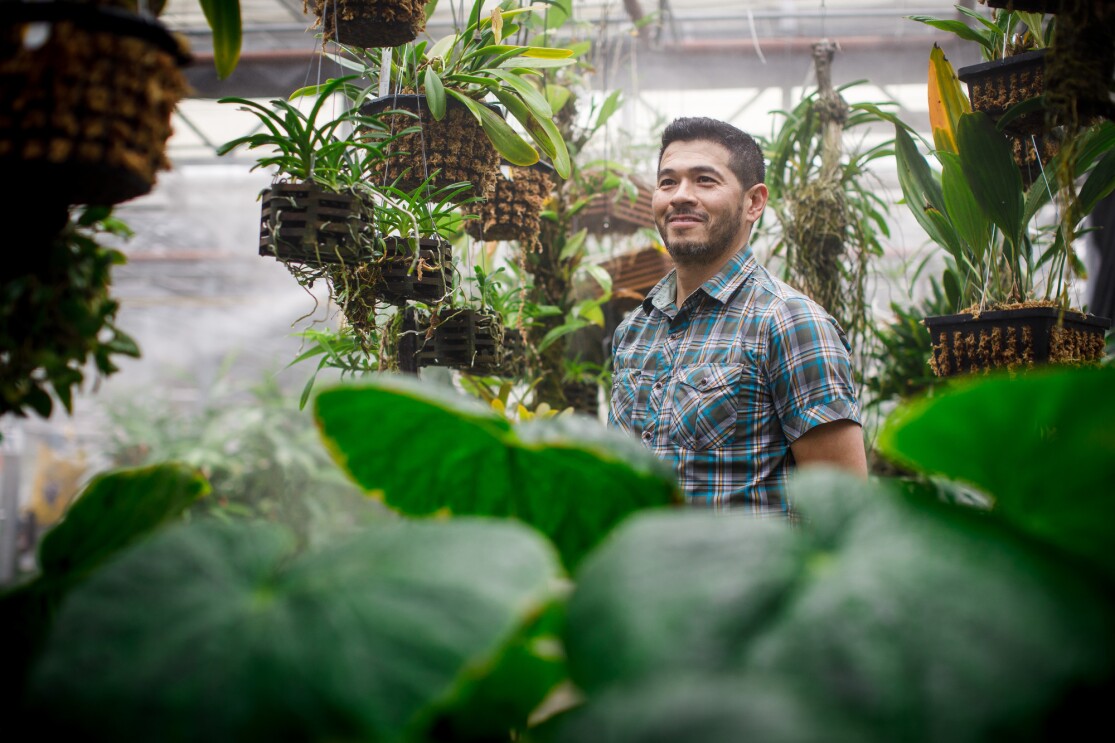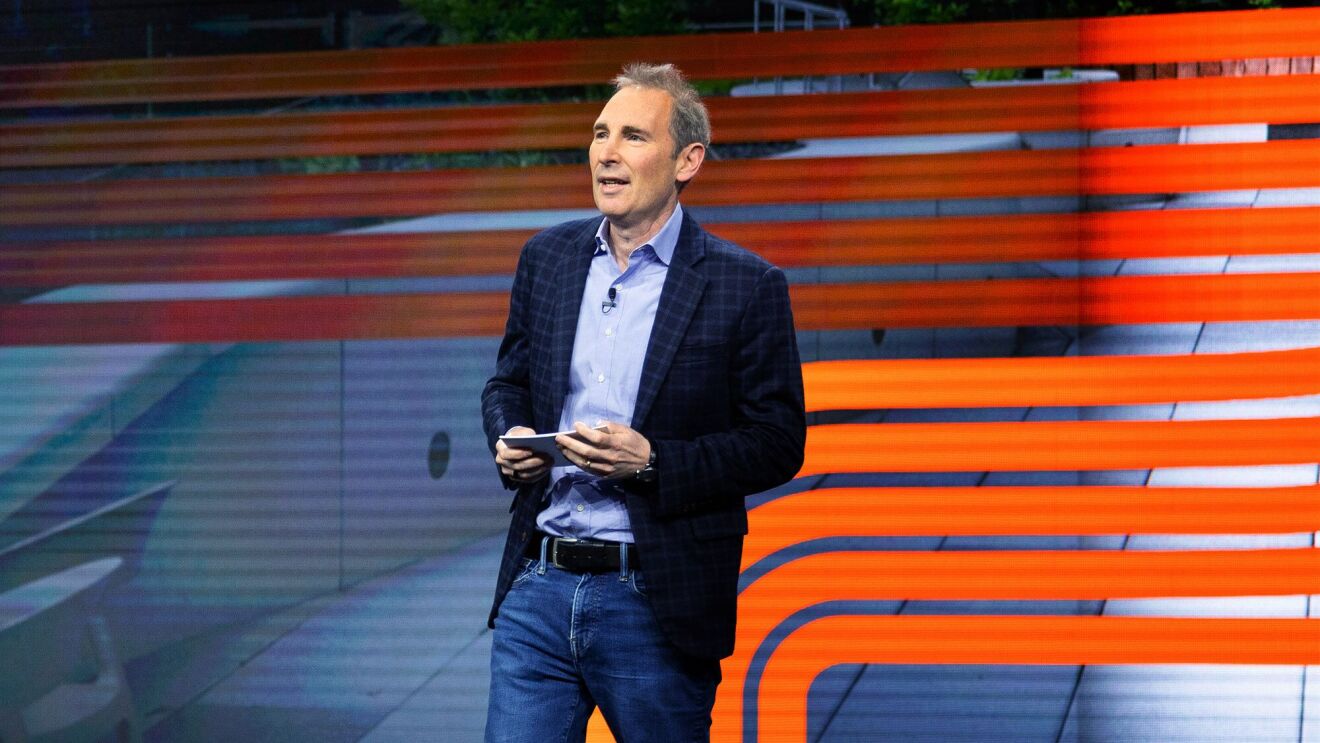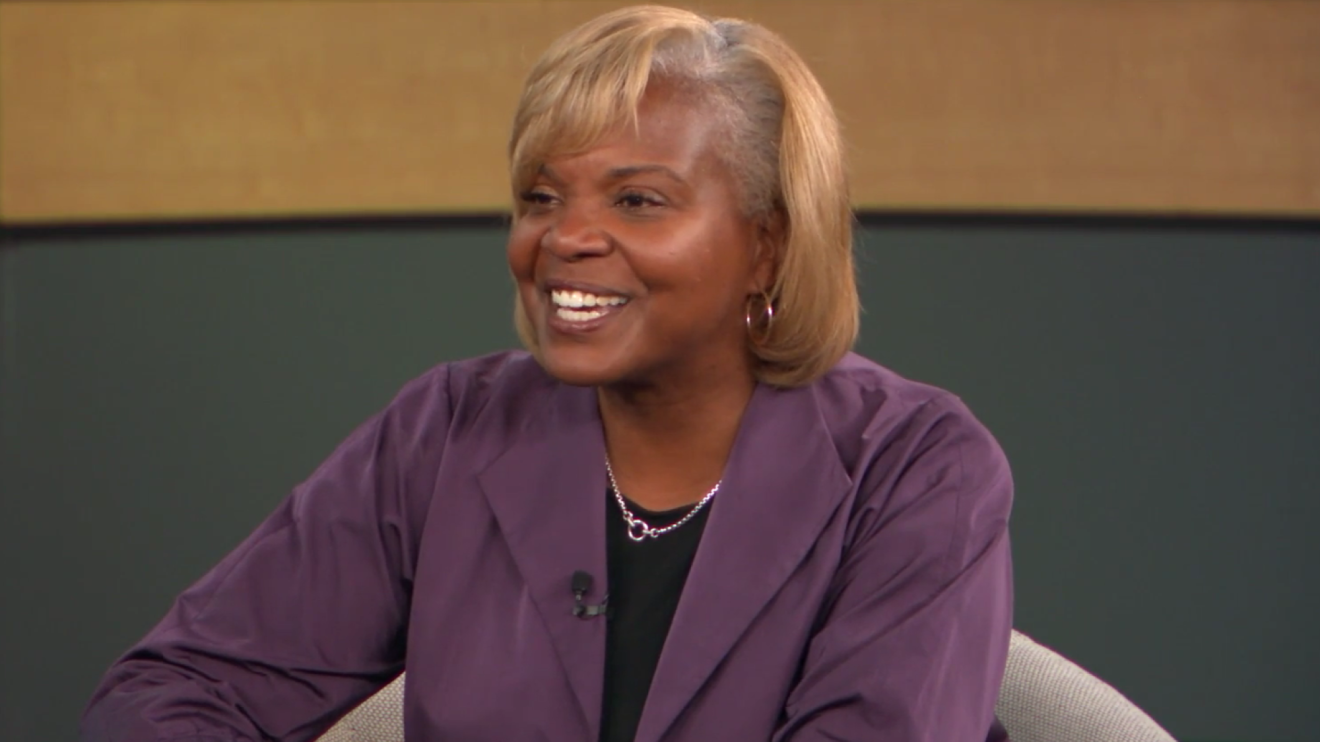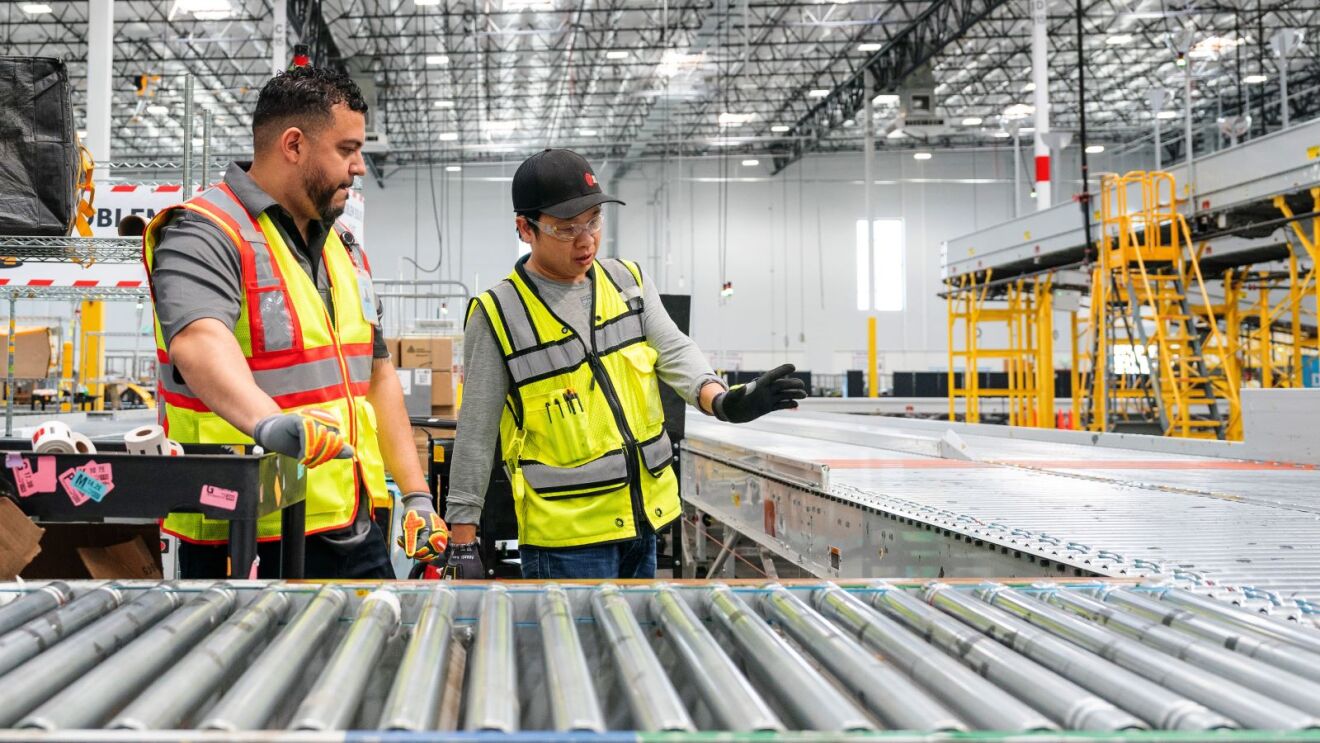On a recent weekday afternoon, Amazon employees and their guests of all ages moved through the sunlit spaces of The Spheres, staring up and up at the greenery in the way you'd expect from people watching a meteor shower. More importantly, from horticulturist Michael Fong's perspective, these visitors also gathered around individual plants to get a closer look. Fong's personal mission — the idea that propels him out of bed and off to work — is to help people stop and notice the plants that are all around them, and get a taste of what makes them so rewarding to learn about.
 Amazon horticulturist Michael Fong in the greenhouse where plants are grown for The Spheres.Photo by JORDAN STEAD / Amazon
Amazon horticulturist Michael Fong in the greenhouse where plants are grown for The Spheres.Photo by JORDAN STEAD / Amazon"Plants are underappreciated," said Fong, a member of the team whose plant nurturing expertise made it possible to fill The Spheres with extraordinary specimens, cloud forest species from around the world. "One of my botany professors had an article on his door about 'plant blindness.' Often people go through life just walking down the street, and they see plants, but they don't really see them. They just walk right past them."
Fong's love of plants started so far back in his childhood that he can't remember when or why it began. "I wouldn’t eat vegetables when I was really young because green was my friend, at least this was according to my mom," he said, laughing. "I also remember taking avocado pits, putting toothpicks in them, and then setting them in water. It fascinated me to watch the roots and plant emerge."
01 / 05
Growing up hasn't dimmed his interest in the least. Nor has the classroom learning he sat through to become a biology professor. To observe him nowadays in a greenhouse is to see a person totally in his element.
"These are fern relatives. They're prehistoric," he said, lingering on the word "prehistoric" with unmistakable awe during a visit to the Woodinville, Washington greenhouses where he and his teammates grow the plants that fill The Spheres. "When I took my first class in plant morphology, which deals with the external structures of plants, prehistoric plants just stood out. Anything that could survive the test of time like that, it's just something you have to grow."
Fong is convinced the Earth will have a better, healthier future if more people appreciate plants. "We talk about all this stuff in terms of the environment, but unless people actually understand living things, I don't think they're motivated to do anything." He moved from California to Seattle in 2016 for his job at Amazon because he believes the rarity of the plants inside The Spheres offers a chance to clarify how much is at stake when it comes to conservation and environmental preservation.
"A common plant, like a pansy or something, doesn't necessarily offer that because it's been cultivated so long. There is no chance of losing it," he said. "But we have these plants like Amorphophallus titanum or other rare or endangered plants. We can inform the public. We can tell them why it's endangered. There's been lots of deforestation. We can tell that story. If we can get people to ask questions, I think we've done our job."
Sitting in The Spheres, you overhear lots of questions. "Hey, Mom," said a little girl who'd rushed over and kneeled on a wooden bench that serpentines past a Begonia sizemoreae. "What's this plant? It has hair on it."
A few yards away, an Amazon employee told the kids in his group, "Orchids are really cool flowers. Orchids are amazing."
Fong's dream is that these visitors will carry their amazement outdoors, and step out into a landscape where they're inspired to explore: to take a close look at their neighborhood trees as they break their winter dormancy and see what leaves look like when they start out; to find a willow tree that has produced the modified flowers known as “catkins”; or to even just act on practical knowledge, such as that spring is not the time of year to park under a conifer, unless you want your car coated in pollen.
Summing up why his job is so meaningful to him, Fong said, "I have always strived for a career where I'm doing something positive, where I'm making some type of change."
Trending news and stories
- How Amazon proved its new delivery drone is safe for takeoff
- Amazon’s AI-powered ‘Interests’ feature automatically finds new products that match your passions and hobbies
- Amazon makes it easier for developers and tech enthusiasts to explore Amazon Nova, its advanced Gen AI models
- How to watch ‘Octopus!,’ coming exclusively to Prime Video















